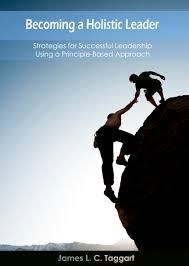How Do You Build Team Performance? (Very Carefully)

There’s no ideal approach to building a team. A team must learn as it’s developing a preferred approach to how it will function in getting the work done. What’s important to remember is that performance is at the core of building a strong team. Performance serves, in effect, as the compass to moving a team up the performance curve.
Here’s an eight point framework for moving a team up the performance curve (adapted from Jon Katzenbach and Douglas Smith, (The Wisdom of Teams).
1. Create a sense of urgency
Everyone on the team must believe that the team has urgent and worthwhile purposes. The greater the urgency and purpose, the more likely that a real team will emerge.
2. Select members by skills, not by personalities
Effective teams need complementary skills. The three broad types of skills are: technical, problem-solving, and interpersonal.
What’s critical for the potential team is to achieve the right balance in skills. But it’s not necessary for members to have all the technical skills immediately. Instead, the key is to have the needed skills at the team’s start-up and the ability for members to acquire additional skills later on. Key skills that should be learned at the start-up include interpersonal, problem-solving, and team skills.
3. Give sufficient time to initial meetings
This is a vital time in a team’s development. The first few meetings involve members getting to know one another. Assumptions are either confirmed or destroyed. Members watch the leader to determine if his or her actions are consistent with what is said. Is the leader control-oriented or flexible? Is the leader sensitive to how members react to his or her style? Can the leader change behaviour?
4. Establish rules of behaviour
A real team has a set of rules to guide it—call it a code of conduct. Without rules, it’s impossible for a group or potential team to transcend to a real team. At the early stage, rules include: attendance, confidentiality, open discussion, constructive disagreement, and fair workload. These rules encourage participation, openness, commitment, and trust.
5. Set some short-term goals
Doing this helps create some momentum to propel the team forward. It ensures that the goals are reasonable and can be reached fairly and quickly. And it acts as a great motivator.
6. Shake them up with new information
This is especially important for intact teams because they tend to block out new information. An example is a management team that’s given new information on employee attitudes and perceptions from a survey. The team reacts in surprise. Giving a team new information serves as a catalyst to the members to help them refocus on the team’s performance. It’s also dangerous for members to assume that they hold all the necessary information collectively.
7. Interact at work and outside
A team must not just spend a lot of time together at work but also time together outside of work. This is especially important during its early stage of development. Members need to have fun, both at work and outside. This promotes a bonding element. Potential teams are weakest here and must make conscious efforts to include socializing.
8. Recognize team performance
Achieving a high level of performance is a team’s ultimate reward. But before that’s reached, it’s vital to recognize the team for its progress and achievements. Doing this keeps the team’s members focused and motivated.
Take a moment to share your experiences on how you’ve built team performance.
If I could solve all the problems myself, I would.
—Thomas Edison
____________________________________________________________________________________________________

Articles from Jim Taggart
View blog
We’ve all had good bosses, and more likely bad bosses that outnumber the former. This post is a more ...

Teamwork is talked about widely in organizations, but often with little understanding of what it mea ...

The past several posts focused on teams and viewed them through a more or less conventional lens. No ...
You may be interested in these jobs
-

Journalier de production
Found in: Jobillico Premium CA C2 - 5 days ago
GEA Canada Drummondville, Canada Full timeGEA à Drummondville est présentement à la recherche de journaliers et de journalières de production pour pourvoir nos postes permanents à temps plein de soir. · Si tu es à l'affût d'une nouvelle carrière professionnelle enrichissante et souhaites profiter d'avantages salariaux e ...
-
Technicien(ne) de chantier
Found in: Zoho Direct Apply - 5 days ago
Direct apply
Groupe ABS Montréal, Canada· Sommaire du poste: · Sous la supervision du Superviseur des opérations de terrain de l'expertise géoenvironnement, nous sommes à la recherche d'un technicien de chantier qui détient une expérience dans le domaine de l'environnement. · Principales responsabilités:Surveillance ...
-

Cook Supervisor
Found in: beBee S2 CA - 3 weeks ago
Compass Canada Winnipeg, Canada Full timeWorking Title: Cook Supervisor · Employment Status: Full-Time · Starting Hourly Rate: 20.00 · Address: 660 Berry Winnipeg MB R3H 0S5 · New Hire Schedule: Monday to Friday 6:30 am to 3:00 pm · You might not know our name, but you know where we are. That's because Compass Group Ca ...

Comments